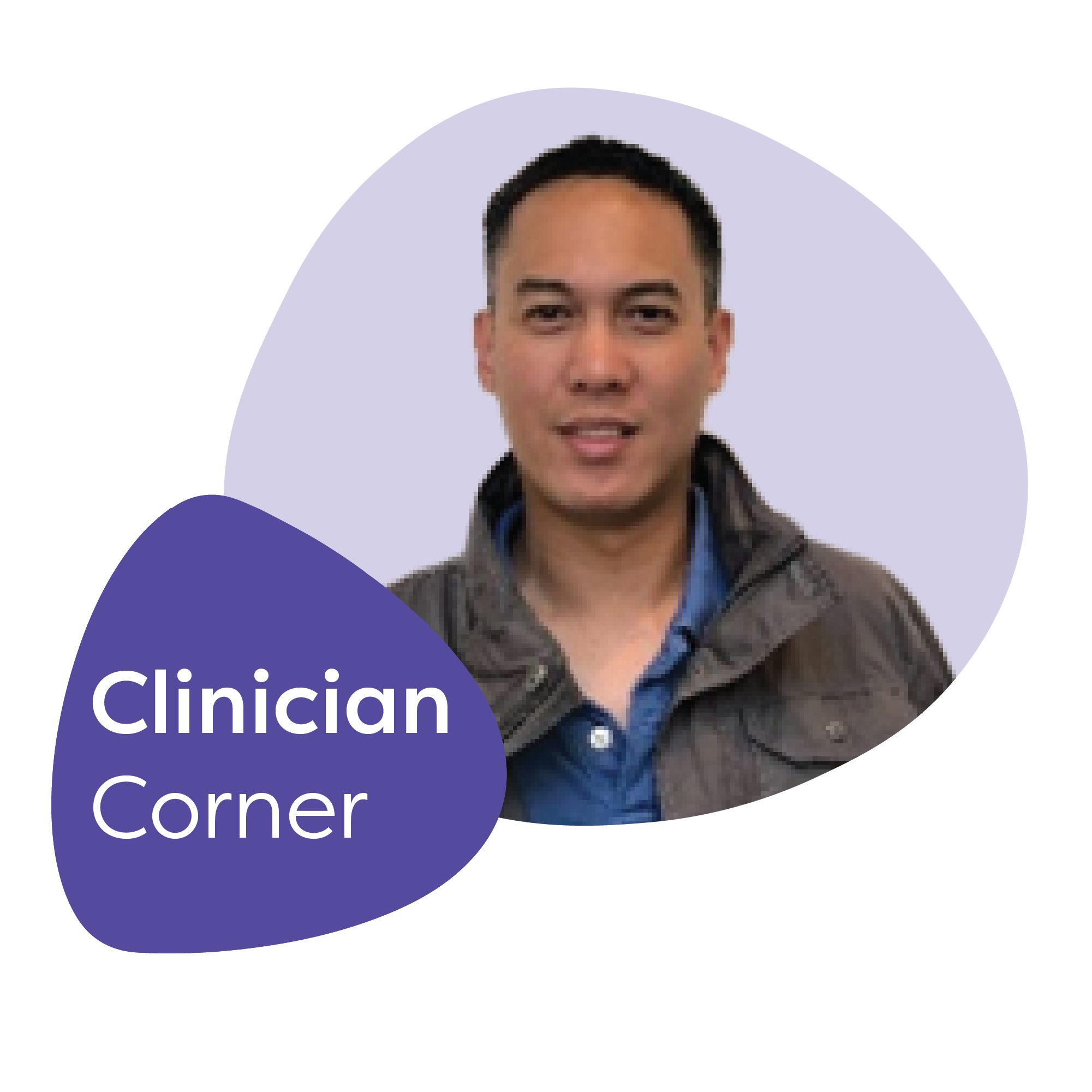Iris clinicians facilitate top-quality behavioral health care – averaging 2.3M patient encounters every year. We are proud of the work our providers do every day to fill care gaps and support healthcare organizations across the country by providing their communities with timely access to exceptional care. Every month, we sit down with one of our providers to spotlight the amazing work they’re doing every day and the impact they’re making on the communities they serve. This month, we’re sitting down to talk with Dr. Abdon Galera!
Q. How did you find Iris and decide you wanted to be an Iris provider?
A. It was 2022 and I was just getting out of the Navy, after working over 10 years in psychiatry, and I wanted to do something new. I put my profile up on LinkedIn and I found Iris. The Iris recruiters were much more receptive than other companies I talked to, and I had a better connection with them.
Q. How does telehealth compare to in-person care?
A. There’s not much difference with in-person care and telepsychiatry. The advantage of telepsychiatry is that it’s a force multiplier. So, you’re able to bridge the gap between time and space with telepsychiatry. You can reach more people in more places than you normally could in person.
Q. How do you foster connection in a virtual environment?
A. There’s really no difference between in person and telepsych. You just explain the technology, especially those who are not used to technology. But once they get used to it, it’s pretty much like a face-to-face interaction. A lot of patients can be somewhat uncomfortable with it at the first, but they realize that there’s not a enough in-person psychiatry providers, and telehealth is the best way to get the care they need – virtual becomes natural to them after a while.
Q. As a healthcare professional, how do you manage work-life balance?
A. Work-life balance is much easier with telepsychiatry. The hours are still the same, but you no longer factor in the commute. So, instead of commuting now, I get to exercise, cook for the family, or drop off the kids — those simple things that you can’t do in person because of the commute.
Even if the commute is only like 15 minutes, you have to get ready. It’s easier to get ready with telepsych because, you put on your clothes, get out of bed, go to your office, and that’s pretty much it.
But there’s, there’s time to do things that are important for the family and myself.
Q. What is the most rewarding part of your job?
A. The most rewarding part of my job is being able to serve the underserved population over at Modesto – an FQHC. A lot of their patients are underprivileged, and I get to provide psychiatric care for them, and that’s pretty much the most rewarding part of my job.
It’s being there for this population I’ve always loved.
Even in school when I was training in San Francisco, helping the underprivileged population is what I really wanted to do. I’m able to do that with telepsych. I’m over in San Diego, so there’s not much need where I live, but there is in Modesto where I work.
Q. What do you love about working with Iris?
A. I love Iris. Working with Iris is efficient – instead of looking for who to blame they fix the problem. A simple example is technology. If something’s not working, it gets fixed the next day. They put a lot of energy into trying to fix the problem so I can be productive and see patients. So, that’s the number one.
And our Practice Managers have a seat at the table where we practice. So, they iron out any creases or smooth out difficulties. That’s what I like. It’s very efficient.
I just love my job. I get to do what I need to do and take care of patients. That’s my number one. And, their goal is for me to be able to do that.
Q. Why do you think telehealth is important to the future of mental health care?
A. Teletherapy is going to be important because we’re going to have an aging, growing population. The boomers are going to be getting older, and there’s not a lot of providers to facilitate care.
Telehealth is a force multiplier, and we can help mitigate some of those shortages with telepsychiatry.
Plus, the newer population, the millennials and Gen Z are more comfortable with technology. So, they’ll be more open to this kind of care.
Really, it’s about bringing the gap, being there where a provider normally wouldn’t be.
Q. What advice would you give someone new to telehealth?
A. I would keep an open mind, get familiar with the technology, and treat it as just seeing a regular patient in person. I’d also say embrace the advantages of telepsychiatry versus the disadvantages, which there aren’t many. But really, it’s just about learning and being patient with the technology.
At Iris, we believe our providers should be respected, valued, and applauded for the work they do, and we couldn’t be more proud to say, “thank you” to our very own Dr. Abdon Galera. If you’d like to learn more about working for Iris Telehealth, contact us today.


